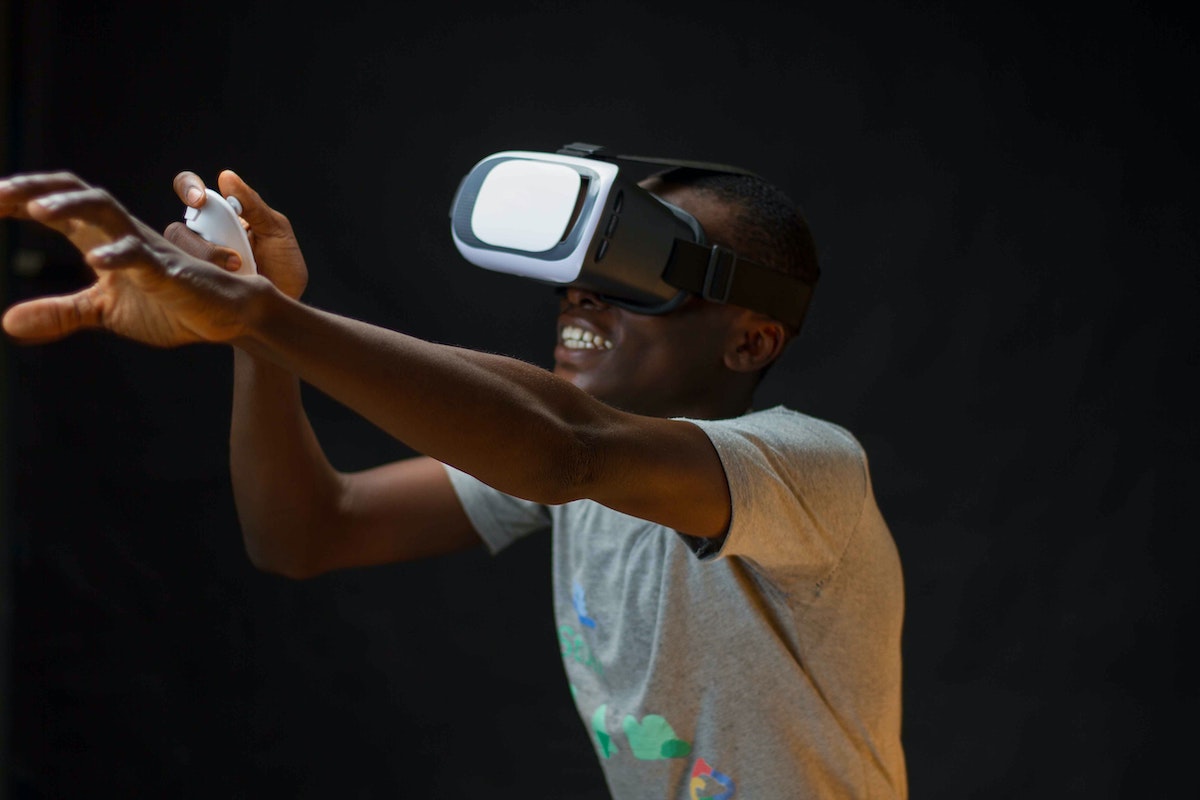“What is the metaverse?”
Google searches for the term hit an all-time high in late October, when Mark Zuckerberg announced the company that owns Facebook, Instagram and WhatsApp would be rebranding to Meta. It seemed that the founder was likely rolling out a rebrand amid yet another data privacy scandal. But Zuckerberg explained that the company was positioning itself in its role in “building the metaverse.”
“We’re already developing exciting new technologies that will help people connect and explore in the metaverse,” Meta’s website says.
The term was foreign to many, but some in the tech space have known of its origins for a long time. There’s no one exact way to describe what the metaverse is, or will be, though most generally agree it’s an Internet of Things-connected space in a perceived virtual universe, using technologies that currently exist and ones that have yet to be created or made mainstream.
The Wharton School’s IT technical director, Tim Allen, said he traces his awareness of the term back to the 1992 sci-fi novel “Snow Crash,” in which humans use avatars to explore a connected, 3D, online world. It’s a reaction to the dystopian, crumbling world around them, and the characters use it as an escape from their real lives.
“You know, this is something I’ve dreamed about for years because I saw it as a huge potential for improving the human condition,” Allen said.
Allen, who comes from a family of educators but pursued a tech degree at the University of Pennsylvania, said virtual reality played a large part of his study of computer-aided information acquisition, and that it’s dipped in and out of the Gartner hype cycle over the years. But he believes it will be critical in the future of the metaverse.
Only in recent years, as VR and augmented reality technology has become mainstream and its hardware more affordable, could technologists begin seeing how the metaverse might take shape. Past attempts haven’t been truly immersive, and technical ability hadn’t yet caught up to create the type of universal digital world in talks today.

Timothy Allen. (Photo via LinkedIn)
“It’s sort of the ultimate realization of communication across the internet and globalization. The metaverse is a chance for every part of our lives to really be expressed in a different way,” Allen said. “In many ways it’s the ultimate blank canvas of our dreams, you know, you can go on there and create anything.”
A few weeks ago, Center City-based 3D geospatial company Cesium dropped its first in a series of episodes explaining the topic through a new podcast, “Building the Open Metaverse,” a project with Epic Games. Cesium CEO Patrick Cozzi told Technical.ly that we can think of the metaverse as a connected internet, and much of it already exists — look at games like Fortnite and Roblox or how we’re using AR wearables.
But does the future of the metaverse look like the dystopian virtual reality depicted in the early 1990s?
“I don’t think that we want those futures, and we certainly don’t want one company owning the metaverse, right?” Cozzi said. “We’re very fortunate to see that all the big players in the space are talking about building an open and collaborative ecosystem. … I do think it’s a future that we want if we do this in a very open and responsible way.”
That involves creating digital privacy and collection, and ownership over digital goods, Cozzi said. And as we map the digital world, we’re using the building blocks of the evolution of the internet to build the metaverse. In early days, it was HTML and text, then images, and now we see 2D video and audio. Moving forward, technologists will be able to bring immersive 3D experiences to those interactions and human connection.
There will be lots of ways this plays out, technologists say. It’s could be as simple as Zoom calls using VR to make it feel like an in-person meeting is happen. Or it could be that a call to your grandmother across the country will son feel more personable than a FaceTime.
But it can also be used in real-world applications — construction sites working on 3D models and the physical building at the same time, or workers being trained for dangerous conditions, but in the safety of a virtual setting. The technology is now here to enable the building of these virtual 3D worlds, and it’ll be applicable in an infinite number of ways, both Allen and Cozzi said.
Like any new, emerging concept of technology, concerns of privacy and abuse run rampant. Allen and Cozzi agreed that the monopoly Facebook has over social mediums is not the situation we want to be in entering a collaborative future of the internet. Like any tool, we’ll need regulators and overseers.
“But of course with any tool you take, it’s how you use it. You know, a hammer, can be used to build houses, a hammer can also be used to smash windows or skulls,” Allen said. “And the metaverse is going to be another tool and we as humanity have to decide not only how we want to use it, but who are we going to trust with an almost sacred obligation to take us to a level that can be incredibly intimate and incredibly important?”
Before you go...
Please consider supporting Technical.ly to keep our independent journalism strong. Unlike most business-focused media outlets, we don’t have a paywall. Instead, we count on your personal and organizational support.
Join our growing Slack community
Join 5,000 tech professionals and entrepreneurs in our community Slack today!

The person charged in the UnitedHealthcare CEO shooting had a ton of tech connections

From rejection to innovation: How I built a tool to beat AI hiring algorithms at their own game

Where are the country’s most vibrant tech and startup communities?


